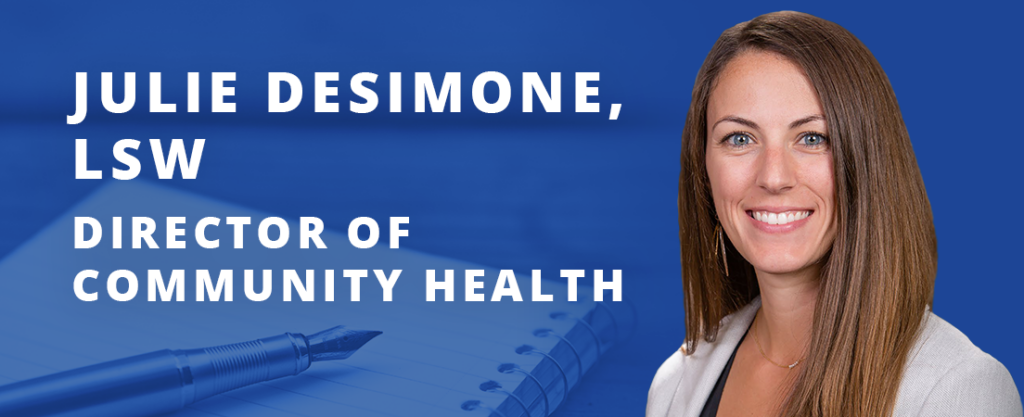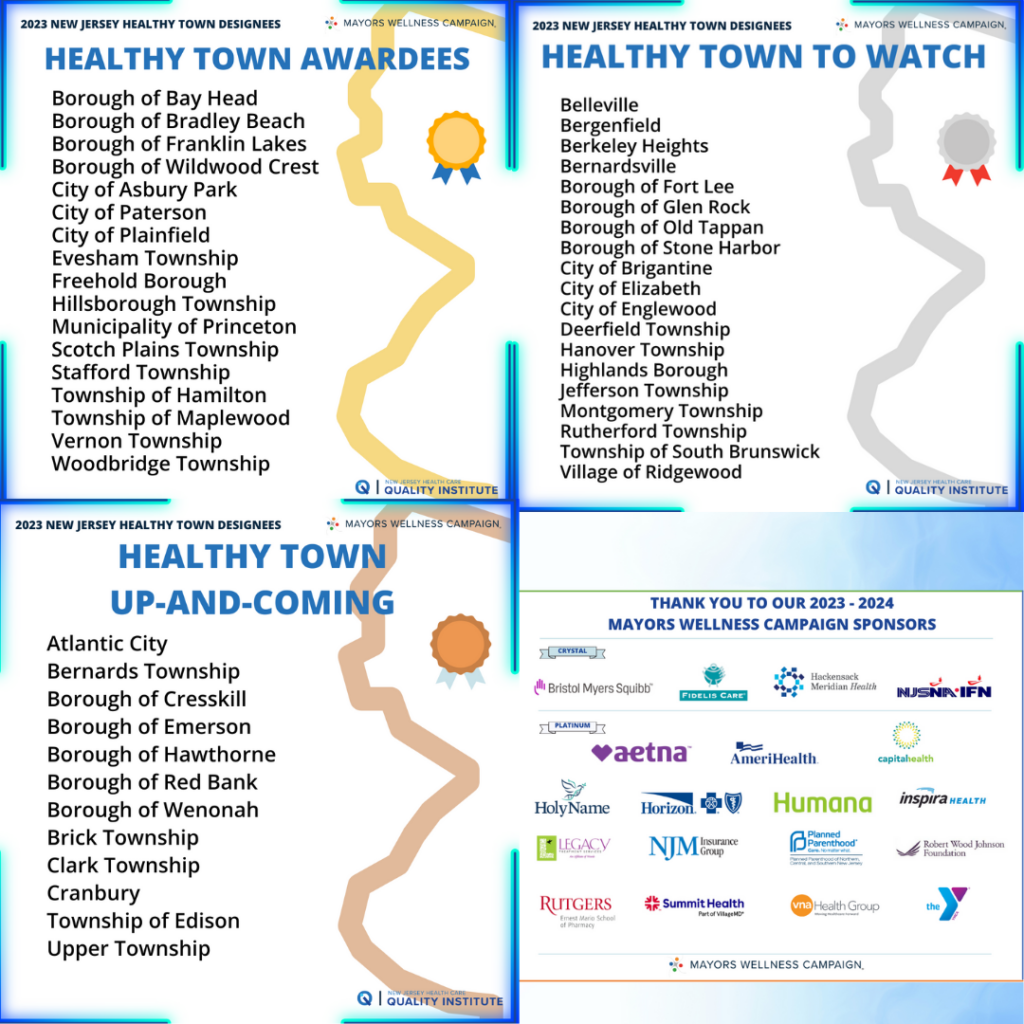As the Director of Community Health for the Quality Institute, I have the pleasure of working with towns and cities across New Jersey as they develop innovative programs that promote health and wellness. The effort is part of the Quality Institute’s Mayors Wellness Campaign, which, in partnership with the New Jersey League of Municipalities, has been supporting New Jersey communities for almost two decades.
We recently announced our “Healthy Town” winners for 2023 and I want to share my observations as well as highlight some of the initiatives from our winning communities.
First, recognition that mayors can play an important role in the health and wellness of their residents continues to grow. And with it, interest in the Mayors Wellness Campaign (MWC) keeps expanding as towns and cities reach out to us each week for program ideas, support, and expertise to enhance their health initiatives. The MWC committees are run largely by volunteers, or municipal employees wearing multiple hats. These low-to-no-cost programs would never happen without their passion and dedication to the work.
Today, there are over 430 towns involved in the MWC. Their programs reflect their community needs and interests and include yoga classes, stigma free walks, blood pressure screening, health fairs, employee wellness initiatives, mobile food pantries, pedestrian safety programs, community clean-ups, farmers markets, educational series, basic needs drives and community events to promote social connectedness. Some communities employ counselors to offer mental health services in the community to individuals without homes.
Recently, we’ve seen an increased focus on aging, notably through the Quality Institute’s COYL (Conversation of Your Life) program. Jefferson Township and Franklin Lakes, for instance, just successfully implemented the program, which empowers residents to document their end-of-life care decisions.
Mental health, too, has been a growing focus. An example is in Princeton, which screened the documentary “Resilience” to spark important discussions and break down barriers of stigma surrounding mental health. This kind of community engagement can address crucial health issues. For instance, in Stafford Township, a half-day resource presentation coupled with mindfulness and chair yoga sessions for older adults demonstrated a holistic approach to mental health support.
This year we urged towns to tell us how they address equity through their MWC programming. We learned that Montgomery Township created a diverse decision-making group to make sure programming reflects the needs of all segments of the community. Rutherford Borough organizes an annual multi-cultural festival, as well as a Pride flag-raising in June, and hosts an “Access for All Committee” that advocated for an accessible playground. Meanwhile, a Stigma Free Committee supports individuals with mental health issues. A community needs assessment prompted the Township of Hamilton to offer services such as food pantries, COVID-19 testing kits, and substance use disorder services in sectors of the community that need it most. Maplewood focused on community outreach and health fairs targeting areas with low income or low township service usage — as well as places that have predominantly English as a second language speakers.
In Woodbridge, I personally visit each year to present the Healthy Town award, and I’m always heartened to witness the results of the hard work put in by the committee to organize events that benefit residents. At last year’s Mental Health community event, the Township gathered entertainers, speakers, and community resources to bring residents together to address stigma in the community.
Recently we’ve seen significant improvements in data collection, needs assessment, and program evaluation. Towns use data to make sure they are addressing the most pressing needs in their communities and to measure their impact. We’ve also seen partnerships, often with local hospitals or health systems, grow.
What can you do? Reach out to your mayor’s office or local MWC to see how you can help. If you don’t have a MWC in your town, we can help you start one. And if you are involved in a local business, or health care organization, reach out to your community to see if you can partner with the local MWC on health initiatives. I’m inspired to see the growth of these programs and look forward to seeing what happens in 2024.


